Amsterdam (2022)
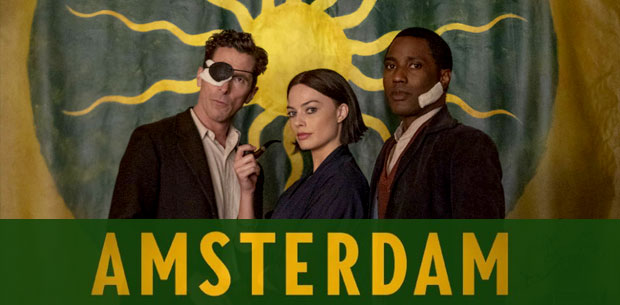
Amsterdam (2022), directed by David O. Russell, is a star-studded, genre-blending mystery-comedy-drama that draws inspiration from real historical events to tell a fictional story of friendship, conspiracy, and intrigue. Featuring an ensemble cast led by Christian Bale, Margot Robbie, and John David Washington, the film weaves a complex tale set against the backdrop of interwar America and Europe, with a focus on a shocking conspiracy that echoes historical realities.
The story unfolds in the 1930s, centering on three close friends—Dr. Burt Berendsen (Christian Bale), a disheveled yet kindhearted World War I veteran-turned-doctor; Harold Woodman (John David Washington), a lawyer and fellow war veteran; and Valerie Voze (Margot Robbie), a bohemian artist and nurse with a mysterious past. Their friendship forms during the war and strengthens in its aftermath as they recover together in Amsterdam, a place of freedom and healing.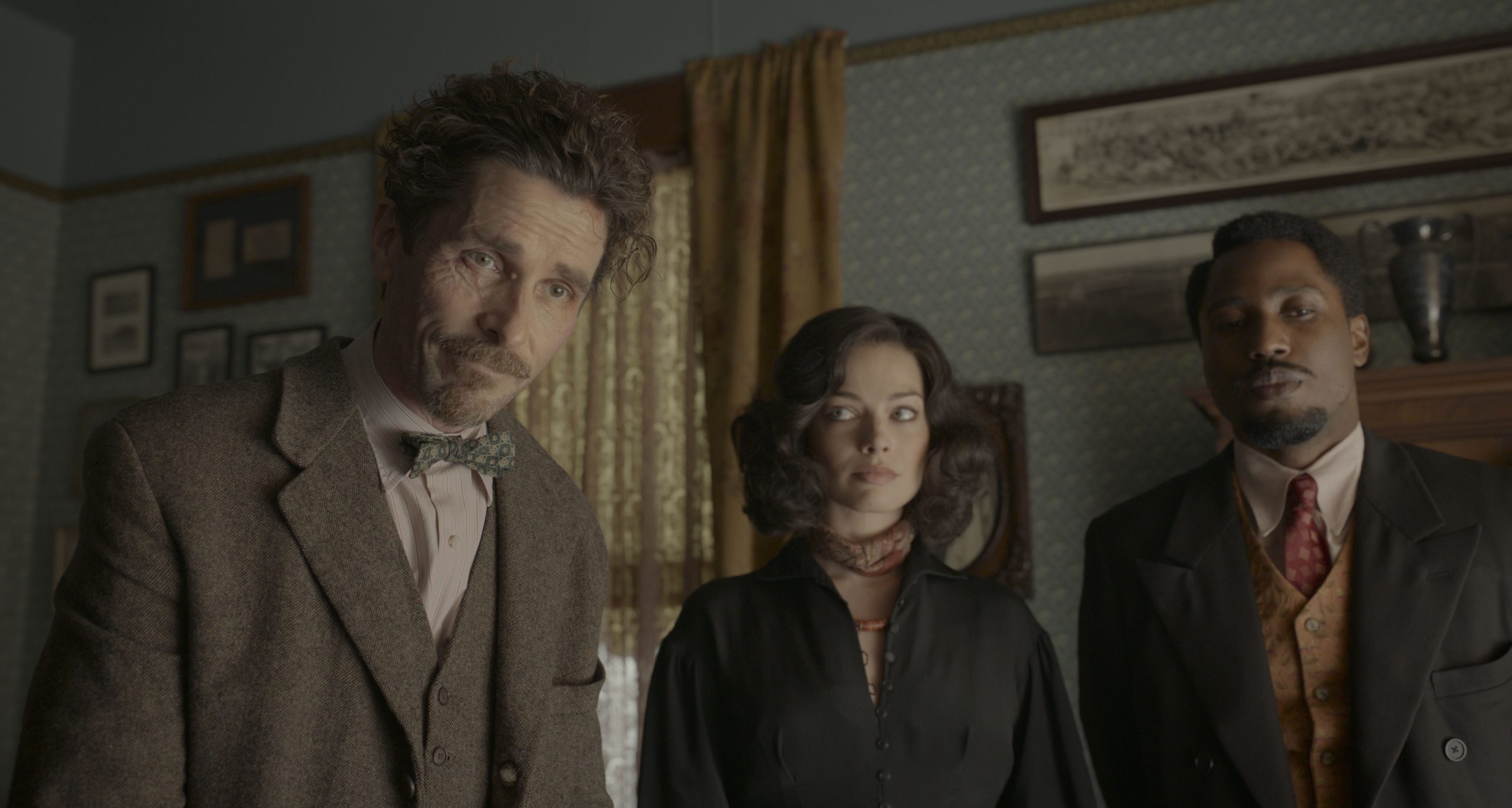
Years later, the trio reunites in New York after being drawn into a murder investigation. When their beloved mentor, Bill Meekins (Ed Begley Jr.), dies under suspicious circumstances, his daughter (Taylor Swift) enlists Burt and Harold to uncover the truth. However, their inquiry spirals into a larger conspiracy involving powerful figures, a secret society, and a sinister plot threatening democracy itself.
As the friends delve deeper, they uncover connections to a wealthy and eccentric couple, Tom and Libby Voze (Rami Malek and Anya Taylor-Joy), whose motivations are ambiguous. Along the way, they encounter a host of colorful characters, including General Gil Dillenbeck (Robert De Niro), a respected military figure who becomes a crucial ally in their fight to expose the conspiracy.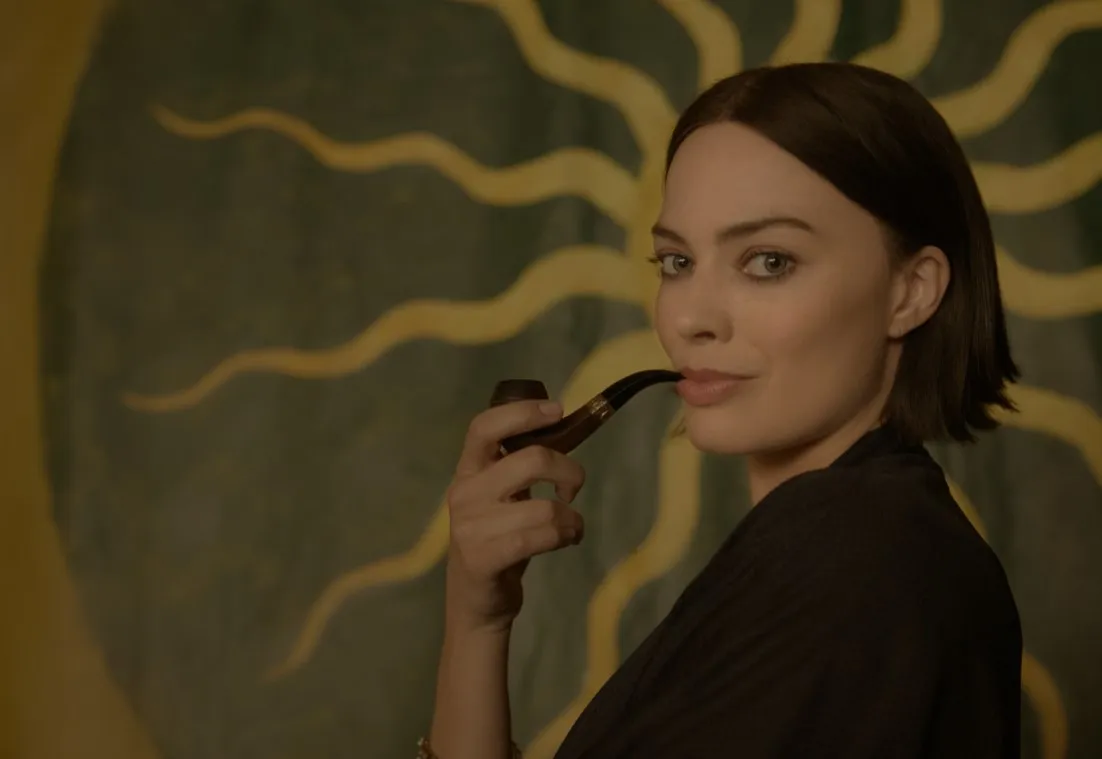
Amsterdam combines elements of historical fiction, noir, and screwball comedy, creating a tone that is both whimsical and tense. At its core, the film is a celebration of enduring friendship, with Burt, Harold, and Valerie embodying resilience and loyalty in the face of danger. Their camaraderie provides the emotional heart of the story, as they navigate both personal struggles and larger societal issues.
The film also delves into themes of power, corruption, and the fragility of democracy, drawing parallels between its fictionalized conspiracy and real-life events, such as the Business Plot of 1933—a purported plan by wealthy businessmen to overthrow President Franklin D. Roosevelt. This historical grounding gives the film a sense of gravitas amid its quirky tone.
David O. Russell’s signature style is evident in the film’s offbeat humor, sharp dialogue, and intricate narrative structure. The plot unfolds through a series of flashbacks, twists, and interconnected storylines, requiring viewers to pay close attention to its details. While this ambitious approach enriches the narrative, it also leads to moments of narrative clutter and uneven pacing.
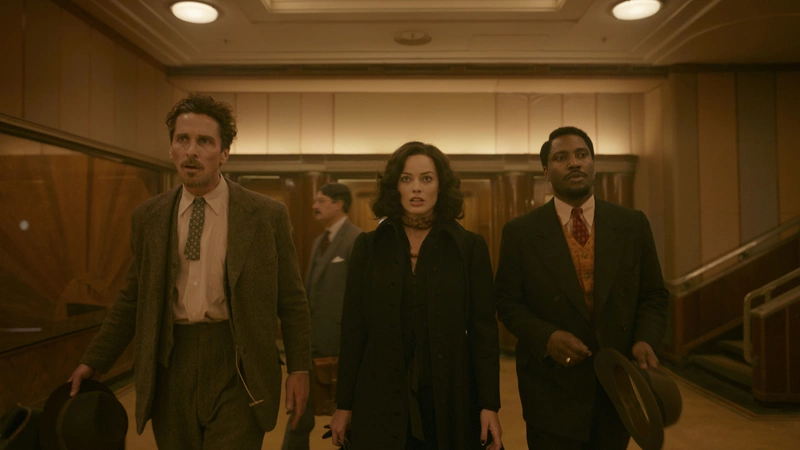
The ensemble cast delivers standout performances, with Christian Bale leading the charge as the eccentric yet endearing Burt Berendsen. Bale’s physical transformation and comedic timing add depth to a character whose scars, both literal and emotional, symbolize the lingering effects of war. John David Washington brings quiet strength to Harold, while Margot Robbie’s Valerie exudes charm, mystery, and vulnerability as a free-spirited artist with a complex past.
Supporting performances from Rami Malek, Anya Taylor-Joy, Robert De Niro, and others add richness to the film’s tapestry of characters. De Niro, in particular, shines as General Dillenbeck, lending gravitas to the story’s climactic revelations. Taylor Swift’s brief but memorable role as the ill-fated Elizabeth Meekins adds a touch of intrigue early in the plot.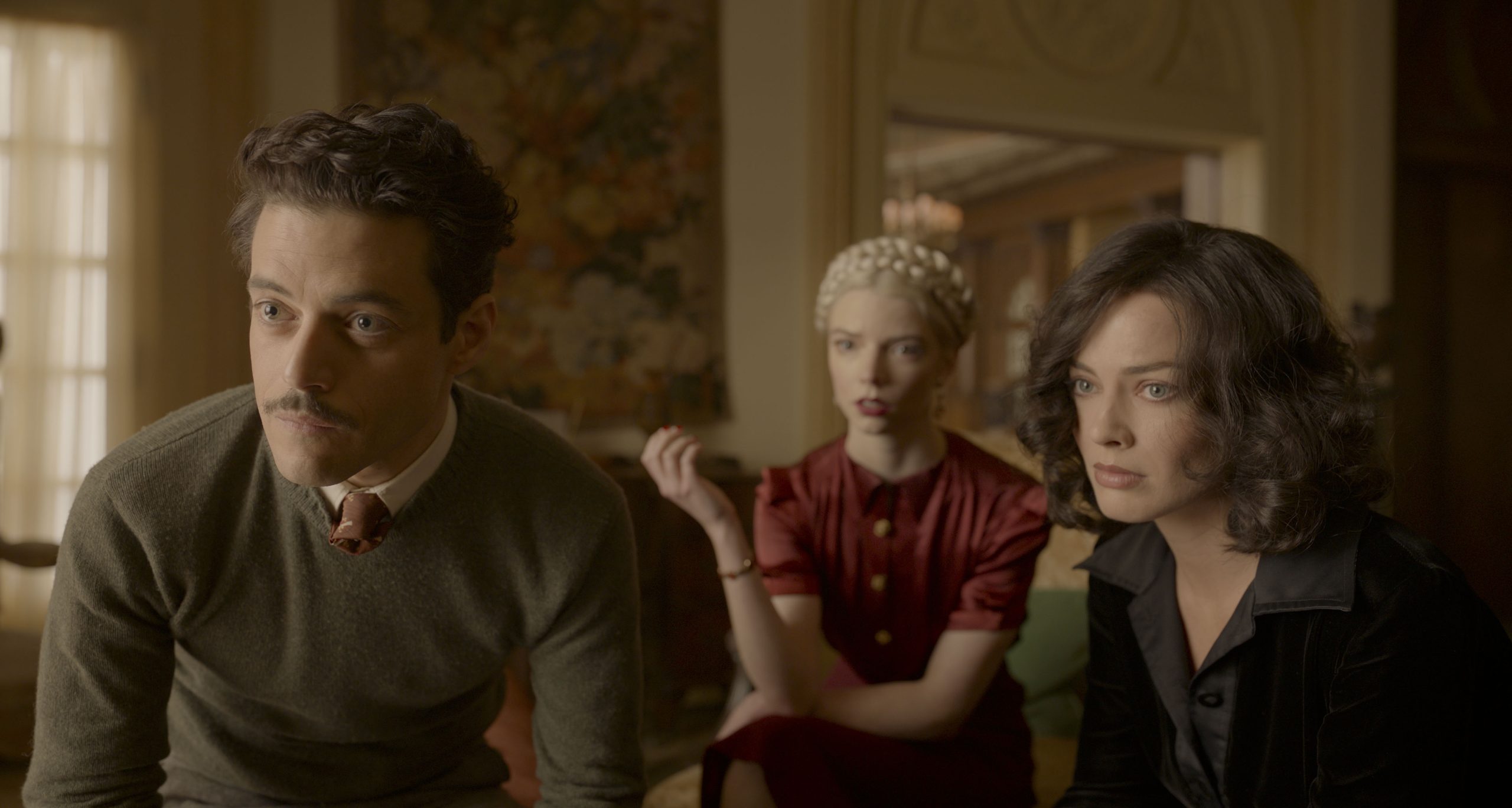
The film’s visual aesthetic is lush and detailed, capturing the glamour and grit of the 1930s. Emmanuel Lubezki’s cinematography enhances the story with warm tones and dynamic framing, creating a sense of intimacy and period authenticity. The production design, costumes, and music all contribute to immersing viewers in the interwar world, with an emphasis on the contrast between the chaos of postwar life and the elegance of high society.
Amsterdam received mixed reviews from critics, with praise for its performances, production values, and ambitious storytelling, but criticism for its convoluted plot and uneven pacing. Some felt that the film’s attempts to balance humor, drama, and historical commentary were overstretched, leading to a narrative that lacked cohesion. However, the chemistry among the lead trio and the film’s underlying message about friendship and resistance to tyranny resonated with many viewers.
Amsterdam is a bold, eccentric film that blends history, mystery, and comedy into a unique cinematic experience. While its sprawling narrative and tonal shifts may not appeal to all audiences, its star-studded cast, rich visuals, and heartfelt themes make it a fascinating exploration of loyalty, courage, and the fight against corruption. At its best, it is a celebration of friendship and the enduring power of standing together in the face of adversity, even when the odds seem insurmountable.











